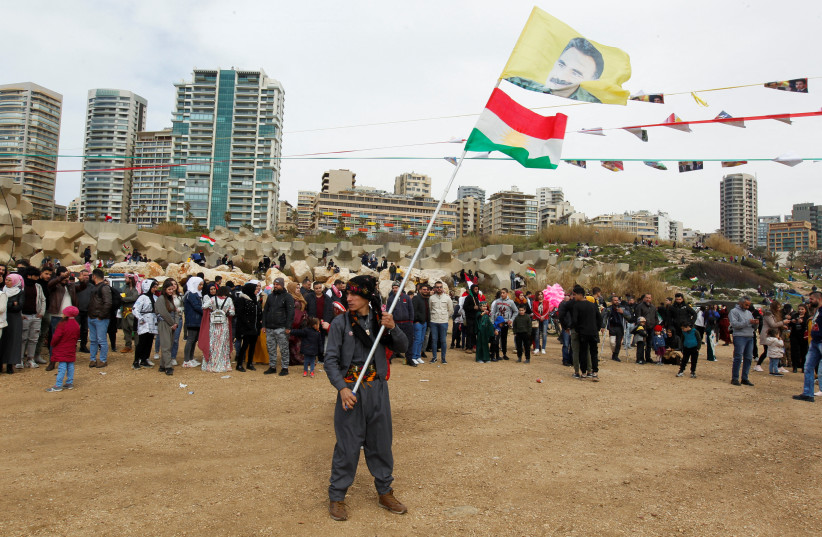Rockets were fired at a Turkish military base in Iraq, according to Iran’s Fars News Agency. This likely indicates Iran has more knowledge than it is revealing about the attacks on Turkish troops in Iraq.
The rockets targeted the Zelikan base, which is east of Mosul, the report said. This is one of Turkey’s few bases that were established in Iraq in recent years and which is not in the mountainous area of the Kurdish region. Attacks on this base near Bashiqa are often carried out by pro-Iranian groups in Iraq.
Turkey has bases in Iraq because it claims to be fighting “terrorists.” Turkey has expanded operations against these “terrorists” in recent weeks, and over the last years it has increased its presence. Turkey also helped train some Arab fighters who opposed ISIS at its Bashiqa base. However, Turkey’s role here is murky, as it appears to want to cement influence not only in the autonomous Kurdish region of northern Iraq, but extend operations to Sinjar, Makhmour and possibly to influence Mosul and Kirkuk.
The overall context then is that Turkey is now viewed as a possible enemy by pro-Iran militias in Nineveh Province, near Mosul. The Fars News article notes, “Turkey has long been violating the territorial integrity of northern Iraq by claiming to oppose the PKK.”
The report says, “Turkey has launched several military operations since last April under the pretext of fighting the PKK in northern Iraq, and is easily talking about a possible attack on the Sinjar region in western Nineveh Province. This has been met with a reaction from Iraqi political and military groups.” This “reaction” could involve more attacks on Turkish forces in Iraq by pro-Iran groups.

Reports note that between four and six rockets were fired on Sunday evening at the Bashiqa base. In addition, reports in early April said there were five rockets fired at the same base. Rockets also targeted the Turkish base in December 2021, when two rockets were fired.
Usually pro-Iran militias use the 107mm. rocket to target adversaries. Over the years these pro-Iran groups have targeted US and Coalition forces, as well as the Kurdish region’s capital of Erbil. Iran has also used missiles to target Erbil. The recent attack might be an escalation by Iran against Turkey in Iraq and a message to Turkey not to expand its operations into Sinjar and other areas.
